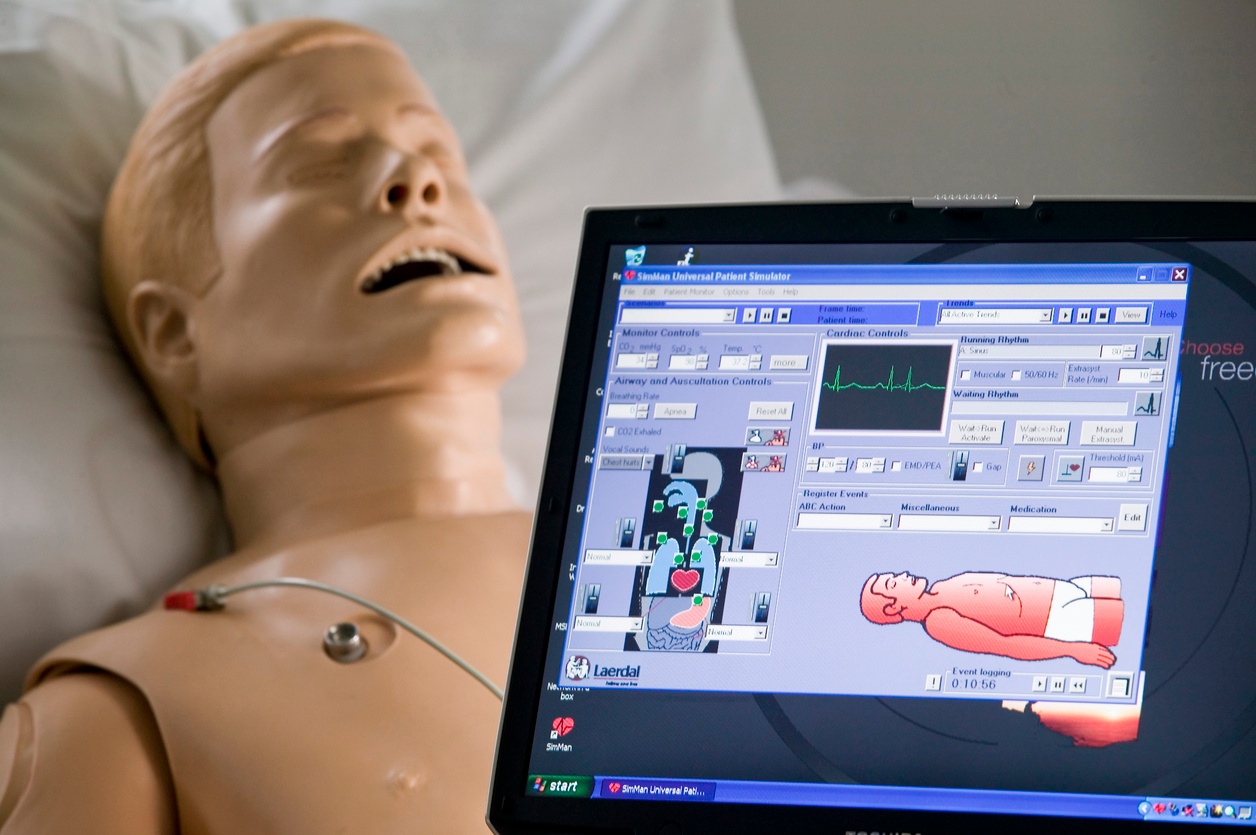
The decision to complete an RN-MSN program led me to Robert Morris University, in Pittsburgh, Pennsylvania, and into healthcare simulation at the Research and Innovation in Simulation Education (RISE) Center. I was part of an initial expansion where part-time instructors were hired to supplement a growing simulation schedule, even though at the time, I had zero simulation experience.
What I did have was previous technical and computer experience, which would prove to be extremely helpful in the world of simulation. I joined a team that had implemented the simulation program at RMU from its conception.
During the mentorship program for the first year of employment, I began learning immediately by reading recommended articles on simulation and debriefing, familiarizing myself with INACSL standards, and observing existing simulation classes with my mentor. I had a notebook full of notes by the end of the first semester.
What I found was everyone had an exponential amount of information in their brains where no one else could see it. I personally felt that I had a multitude of unanswered questions and although I knew the general subject matter of the day’s events I had no detailed plan, which I felt I needed.
The turning point came when I completed classes in Healthcare Simulation and Management offered by Robert Morris University as a graduate certificate.
What I Learned
- Ways to design and manage simulations
- Create lesson plans
- Perform debriefing
- Orient new simulation instructors
- Operate a simulation center
I was able to identify key ingredients we were missing in our lesson plans, initiate a new employee onboarding process, and implement programs for quality control.
Our lesson plans have been updated with all details, and anyone should be able to follow the lesson plan and deliver a consistent experience for learners. It has been two and a half years since I have entered the world of simulation. I continue to learn every day and try to keep up on research, attend conferences, and stay relevant in simulation technology.
My suggestions for inexperienced simulation instructors or for those that have an interest in simulation is to complete some type of formal education on simulation, read the literature, understand INACSL standards, practice debriefing, and to have the confidence to speak up when fresh eyes notice needed improvements.
To stay up-to-date on the latest topics in healthcare education and simulation, subscribe to SimTalk blog.
Dana Bargerstock, RN, MSN, is a simulation educator and the Operations Manager of the RISE Center at RMU.
For more information about simulation in the Pennsylvania, Ohio, West Virginia area, check out SimPOW.org.






